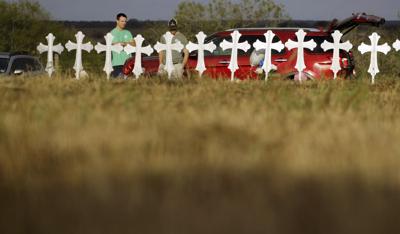Compared to the rest of the nation, South Carolina has surprisingly restrictive laws about who can carry a concealed weapon. But those laws will be rendered useless if a bill coming up for a House vote as early as next week were to pass.
The bill, sponsored by Rep. Richard Hudson, R-N.C., would allow people to carry concealed weapons from one state to another, a notion referred to as “reciprocity.”
It sounds innocuous enough, but state oversight regarding concealed weapons varies wildly. South Carolina, for example, requires residents to obtain a permit, which means undergoing a background check and gun safety training. At least 12 states have no rules whatsoever.
So the House bill would mean that anyone interested in skirting South Carolina’s more restrictive regulations could simply go to a state with fewer rules, get a permit, buy a gun and carry a firearm back across the state line with no repercussions.
South Carolina law already grants reciprocity to permit holders from 23 states.
While the House bill would be disastrous policy, it’s also shameful that lawmakers’ most aggressive response to two of the worst mass shootings in United States history over the past two months is to undermine state gun laws rather than pass sensible reforms.
After a shooter in Las Vegas killed 59 people and injured more than 500 in October, legislators rightly considered banning bump stocks, the device that allowed that killer to dramatically increase the murderous power of his arsenal of semiautomatic weapons.
Bills are still floating around Congress that would do just that. A ban on bump stocks should be enacted without delay.
And after a gunman murdered 26 men, women and children at a Texas church in November, legislators rightly pushed to strengthen the federal database that flags violent criminals during background checks for some gun purchases.
The killer in that case had been convicted of domestic violence, which should have precluded him from purchasing a weapon under federal law.
Similarly, Dylann Roof should have been prevented from buying the gun he used to kill nine people at the Emanuel AME Church in 2015, but human error failed to flag a drug charge during the background check.
A Senate bill, co-sponsored by Sen. Tim Scott, R-S.C., would make needed reforms to help ensure that fewer violent people slip through the cracks during background checks. That bipartisan effort deserves broad support on Capitol Hill.
More changes are still needed, however, to close loopholes that allow criminals to buy guns.
All gun purchases, including those at gun shows and online, should require background checks, for example. And the maximum waiting period for background checks should be extended beyond the current three-day limit. An incomplete background check is useless.
When the S.C. Legislature returns in January, lawmakers will consider a variety of gun measures. Bills to extend the maximum wait period for background checks should pass. An effort to eliminate concealed carry permits should fail.
Gun violence has taken a deeply tragic toll on the nation this year. Lawmakers must respond by strengthening the protections that help keep guns out of dangerous hands rather than undercutting states with sensible restrictions.







